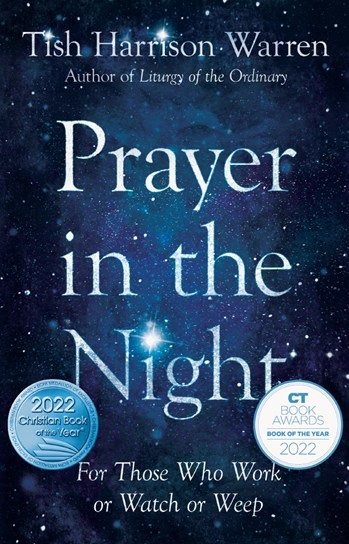In her book Prayer in the Night, Tish Harrison Warren notes that since the dawn of time, humans have feared the night.
Even today (or tonight), with lights and smart devices, we still confront our darkest fears in, well, the dark.
As she writes:
“Our very bodies confront darkness each night. So each night we practice facing our truest state: we are exposed, we cannot control our lives, we will die.
In the daylight, I’m distracted. At moments, maybe even productive.
At night I feel alone, even in a house full of sleeping bodies, I feel small and mortal.
The darkness of nighttime amplifies grief and anxiety…. we are all so very, very vulnerable.”
Accurate, no?
Yet she makes this important point: God made the night and called it “good.”
Of course, before the fall, the night wasn’t terrifying, and yet God knew there would be a fall, and created the night anyway.
Warren notes that “In wisdom, God made things such that every day we face a time of darkness,” and yet at the same time, Revelation tells us that night will be “no more,” the day will finally overcome, much as Christ overcame death.
In other words, the fear that comes with night, the time of wrestling Jacob experienced at night, will be crushed.
As such, the night is a distinctly temporal phenomenon, and it seems true that it’s always night (it seems) when we either doubt or trust God the deepest, the truest.
When I was recently hospitalized for many nights, I came to fear the end of visiting hours, the change of shifts, the way the hospital turned quiet – not for rest, but because it was so understaffed that you’d go long periods without seeing or hearing anyone except the strange white noise of a pumping IV line.
I never knew which night I was getting — one where I’d find God, or one where I felt he’d left at 8 PM, along with the other visitors.
But whatever the case, I needed to confront my faith in God every night, and I think that as both Christians and people prone to depression, anxiety, chronic pain, or anything else troubling, the nights, oh the nights — they can be awful.
In the day, we can at least try to do something about our problems, right?
At night, our problems just sit there, and we’re too tired to work on them, and too anxious to sleep on them.
And in those moments, we look for God and hope to find him with a raw passion that’s difficult to muster in the day.
Well, just remember, that in those times, God has already found us, and many times, before dawn, by God’s grace, we will realize that he is holding us, and has been the whole time.
Find a psychiatrist here.
Find a therapist here.

